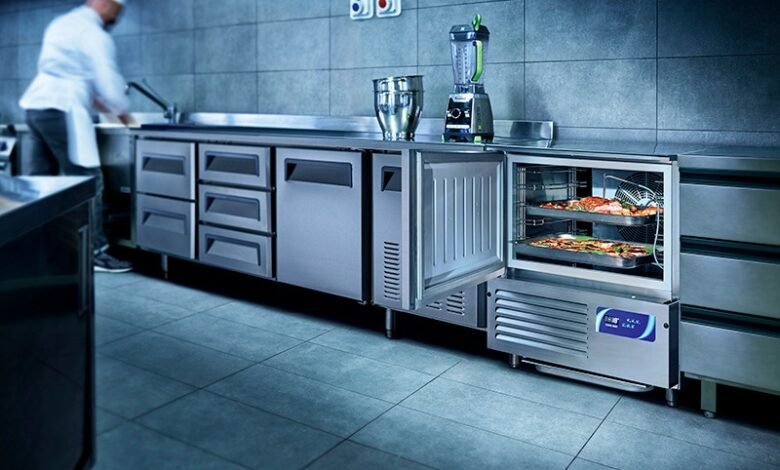Blast Chiller Repair in UK Kitchens: What to Expect When Things Go Wrong

In a professional kitchen, there’s rarely time for equipment to act up especially something as crucial as your blast chiller. These machines aren’t just about cooling things quickly. They help you hit strict food safety targets, avoid waste, and stay compliant with HACCP guidelines. When one stops working as it should, things can go downhill fast especially if you’re managing high-volume service across Greater London or the South-East. So, let’s talk about how to spot problems early and what to expect when a professional comes in for blast-chiller repair.
- First Signs Something’s Not Right
You might not notice a full breakdown straight away. Instead, it often starts with small clues the kind that are easy to brush off during a busy shift:
- The chiller’s taking longer to cool batches.
- You’re not hitting 3°C within the 90-minute cooling window.
- Ice is building up where it shouldn’t
- There’s a hum or rattle that wasn’t there last week.
Ignore these, and you risk more than just spoiled stock. In most cases, these are early warnings that the system’s under pressure or parts are wearing down.
- Food Safety Is Non-Negotiable
UK kitchens are held to a high standard and for good reason. Blast chillers are part of how you prove food’s been cooled properly and safely. If yours isn’t working:
- You’ll need to log it in your HACCP records.
- Find an alternative cooling method (quickly)
- Stop using the faulty unit until it’s fixed.
- Notify your compliance lead or manager.
This isn’t the time to “wait and see.” Even a short delay can leave you open to enforcement action from the Food Standards Agency.
- So, What Happens During a Repair?
When an engineer shows up, they’ll usually start with a temperature check and system run-through. Depending on what’s found, the fix could involve:
- Replacing worn fans, sensors, or thermostats
- Checking and topping up refrigerant gas
- Repairing electrical faults
- Clearing ice blockages or drainage issues
In some cases, your chiller might just need recalibrating but if it’s an older model, it could be time for a longer-term conversation. Prevention > Panic. You don’t want to call for emergency repairs every few months. A quick check-up every quarter can save you from sudden breakdowns. Here’s what else helps:
- Clean internal fans and filters regularly
- Keep door seals in good condition.
- Don’t overload the chiller or leave the door open.
- Train your team to report faults early.
A little prevention keeps downtime low and your kitchen running smoothly.
Wrap Up
Whether you’re running a pub kitchen in Croydon or a school canteen in East London, you need equipment that works and a repair team that gets there fast. For trusted blast freezer repairs in London, Be Cool Refrigeration offers swift response, expert engineers, and clear guidance to get you compliant and back in action fast.



